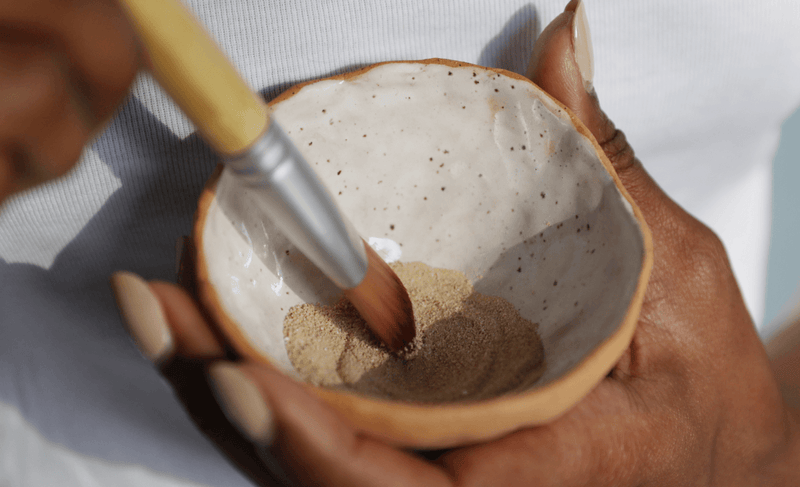“Probiotics” is now a household word, conjuring up fermented foods such as yogurt, sauerkraut, kimchi, pickles and supplements, and these microorganisms may be your skin’s new best friends.
What is the Skin’s Microbiome?
Just like your gut, your skin is home to billions of living microorganisms, including bacteria and fungi, known as skin flora. Together, these microorganisms make up the skin’s microbiome. Invisible to the eye, this tiny but mighty community works together to keep skin healthy by balancing pH and protecting the skin’s barrier.
What are Prebiotics, Probiotics and Postbiotics (Huh?)
Now that we know how the skin’s microbiome works, let’s get to know some of its key players:
1. Prebiotics
Non-digestible ingredients that feed and support the skin’s bacteria. Think of Prebiotics as the fertilizer that helps the good bacteria (Probiotics) and microorganisms grow. Since Prebiotics feed Prebiotics, both are important to apply topically for a healthy skin barrier.
2. Probiotics
Good bacteria, such as Lactobacillus that live naturally in your gut and on your skin. Probiotic supplements and foods are thought to contain live bacteria that improve overall health.
3. Postbiotics
The byproducts from Probiotic microorganisms that may improve digestion, lead to healthier skin and gut health.
What Happens When Your Skin Microbiome is Out of Balance?
When the skin’s microbiome is disturbed, its immunity is disrupted. The result? An overgrowth of pathogenic (bad) bacteria, fungi, inflammation and an altered skin pH. Studies show a relationship between unhealthy skin microbiomes and conditions such as eczema, psoriasis seborrheic dermatitis (dandruff), pityrosporum folliculitis, tinea versicolor and even acne.
What Causes the Skin’s Microbiome to be Disturbed?
Disruption to the skin’s microbiome is thought to be caused by harsh soaps and body washes with fragrance and sulfates, over-exfoliating, using topical antibiotics and unhealthy gut microflora.
Microbiome Skincare
So how exactly do we nurture our skin’s microbiome? Enter microbiome skincare. Once thought to just include topical probiotic moisturizers or probiotic skincare for sensitive skin, the science of microbiome skincare has expanded to include prebiotics and even postbiotics in formulations. How else can you keep the skin’s microbiome healthy? Choose microbiome-friendly products – those that don’t disrupt the microflora on skin by stripping skin of its natural oils! Think gentle products with no harsh chemicals or fragrances. Finally, the connection between gut and skin health is real! Studies show that microflora in the gut can affect skin health, in what’s known as the Gut Skin Access. Reach for fermented foods rich in Probiotics such as miso and sauerkraut and consider taking a vegan probiotic supplement. Your gut and your skin will thank you!
